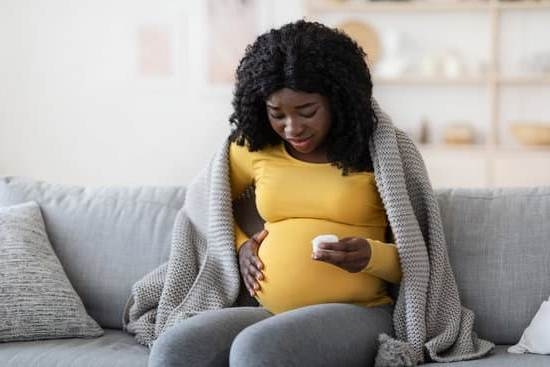Experiencing cramps during early pregnancy can be a cause for concern and confusion for many women. The question of “do early pregnancy cramps come and go” is a common one that arises during this delicate stage. Understanding the nuances of these cramps is crucial in order to differentiate between normal symptoms and potential issues that may require medical attention.
Early pregnancy cramps are often described as mild, similar to menstrual cramps, and may come and go at various points during the first trimester. These cramps are typically caused by the uterus expanding and preparing for the growth of the baby. While they are usually considered normal, it is important to pay attention to their intensity, duration, and any accompanying symptoms to ensure a healthy pregnancy.
One key factor in distinguishing early pregnancy cramps from menstrual cramps is the timing – early pregnancy cramps can occur even before a missed period, while menstrual cramps generally start once menstruation begins. Additionally, early pregnancy cramps may be accompanied by other symptoms such as nausea, breast tenderness, or spotting. Knowing how to differentiate between these types of discomfort can help alleviate anxiety and provide reassurance during this critical time.
What Causes Early Pregnancy Cramps
During early pregnancy, cramps can be a common concern for many women. These cramps are typically caused by the changes and adjustments happening in the body as it prepares to nurture and support a growing fetus. Understanding what causes these cramps can help alleviate some of the worries that come with experiencing them.
Here are some of the main reasons why early pregnancy cramps occur:
- Implantation: One of the first causes of cramping in early pregnancy is implantation. When a fertilized egg attaches itself to the uterine lining, it can cause mild cramping and spotting.
- Hormonal Changes: Hormonal fluctuations during pregnancy can also lead to cramping. The surge in hormones like progesterone can affect the muscles in the uterus, causing them to contract and result in cramps.
- Uterus Growth: As the uterus expands to accommodate the growing embryo, it puts pressure on surrounding organs and tissues, which can lead to discomfort and cramping.
It is important to note that early pregnancy cramps may come and go throughout the first trimester. This ebb and flow of discomfort is often normal and should not cause excessive worry. However, if the cramps are severe, persistent, or accompanied by other concerning symptoms such as heavy bleeding or fever, it is crucial to seek medical advice promptly.
Overall, understanding the different causes of early pregnancy cramps can provide reassurance for expectant mothers experiencing this common symptom. By recognizing that these discomforts are often a natural part of pregnancy due to physiological changes taking place within the body, women can feel more at ease as they navigate this exciting yet sometimes challenging journey towards motherhood.
Do Early Pregnancy Cramps Come and Go
During early pregnancy, many women experience cramps that can be concerning. A common question that arises is: do early pregnancy cramps come and go? The answer to this question is yes, early pregnancy cramps can indeed come and go. This phenomenon is often attributed to the changes happening in the body as it prepares for pregnancy.
To help you understand this better, here are some key points to consider about early pregnancy cramps coming and going:
- Implantation: One of the primary reasons for early pregnancy cramps coming and going is implantation. When a fertilized egg attaches itself to the uterus lining, it can cause mild cramping. These cramps may come and go as the body adjusts to this new development.
- Uterine Growth: As the uterus expands to accommodate the growing fetus, you may experience cramping on and off. This is a normal part of pregnancy as your body undergoes significant changes.
- Hormonal Changes: Fluctuations in hormone levels during early pregnancy can also lead to cramping that comes and goes. The shifting hormones play a crucial role in supporting the developing baby, but they can also trigger uterine contractions.
Overall, experiencing early pregnancy cramps that come and go is usually considered normal unless accompanied by severe pain or bleeding. It’s essential to stay informed about these changes in your body during this critical time. If you have any concerns or doubts about your symptoms, always consult with your healthcare provider for guidance and reassurance.
How to Differentiate Early Pregnancy Cramps From Menstrual Cramps
Early pregnancy cramps and menstrual cramps can sometimes be confusing for women to differentiate, as they can share similar characteristics. However, there are key differences that can help you determine whether what you’re experiencing is related to pregnancy or your menstrual cycle. Early pregnancy cramps typically feel milder and less intense compared to menstrual cramps. They may also be described as more like a dull ache or pressure in the lower abdomen.
One way to distinguish between early pregnancy cramps and menstrual cramps is by the timing of when they occur. Menstrual cramps usually manifest just before or during your period, while early pregnancy cramps can occur at any time during the first few weeks after conception. Additionally, early pregnancy cramps may be accompanied by other symptoms like breast tenderness, nausea, fatigue, and frequent urination, which are not commonly associated with menstrual cramps.
It’s important to listen to your body and pay attention to any unusual signs or symptoms you may be experiencing. If you are unsure about whether the cramping you are feeling is related to early pregnancy or your menstrual cycle, it’s always best to take a home pregnancy test or consult with your healthcare provider for further evaluation.
Understanding the differences between these types of cramps can help alleviate any anxiety or uncertainty you may have about this aspect of early pregnancy.
| Early Pregnancy Cramps | Menstrual Cramps |
|---|---|
| Typically milder and less intense | Can be more severe |
| May feel like a dull ache | Often sharp and throbbing pain |
| Accompanied by other symptoms like breast tenderness, nausea | Mainly focused on lower abdomen |
Tips for Managing Early Pregnancy Cramps
During early pregnancy, it is common for women to experience cramping as the body undergoes changes to accommodate the growing fetus. These cramps may vary in intensity and duration, leaving some women wondering, “Do early pregnancy cramps come and go?” The answer is yes, early pregnancy cramps can indeed come and go throughout the first trimester.
To manage early pregnancy cramps effectively, there are several tips that pregnant individuals can follow. Staying hydrated by drinking plenty of water can help alleviate cramps, as dehydration can exacerbate muscle contractions. Engaging in light exercise or taking a warm bath can also provide relief from discomfort. Additionally, placing a heating pad on the lower abdomen or practicing relaxation techniques such as deep breathing may help ease the intensity of cramps.
It is important for pregnant women experiencing early pregnancy cramps to listen to their bodies and take breaks when needed. Avoiding strenuous activities that may trigger more intense cramping is advisable. Consulting with a healthcare provider about safe pain management options during pregnancy is also recommended to ensure the well-being of both the mother and baby. By implementing these tips for managing early pregnancy cramps, expectant mothers can navigate this common symptom with greater comfort and peace of mind.
| Tips for Managing Early Pregnancy Cramps | Benefits |
|---|---|
| Stay hydrated | Alleviates muscle contractions |
| Engage in light exercise | Provides relief from discomfort |
| Use a heating pad | Eases the intensity of cramps |
When to Consult a Doctor for Early Pregnancy Cramps
Signs to Look Out For
While early pregnancy cramps are common and usually harmless, there are certain signs and symptoms that indicate you should consult a doctor. If your cramps are severe and persistent, accompanied by heavy bleeding or unusual discharge, it is essential to seek medical attention. Additionally, if the pain is localized on one side or if you experience fever or chills along with the cramps, it could be a sign of a more serious issue such as an ectopic pregnancy or infection.
Seeking Medical Advice
If you are uncertain about the cause of your early pregnancy cramps or if they are causing you significant discomfort or worry, it is always best to schedule an appointment with your healthcare provider. They can conduct tests to rule out any complications and provide guidance on how to manage the discomfort.
It is important not to ignore persistent or worsening cramping during early pregnancy, as timely intervention can prevent potential risks and ensure the health of both you and your baby.
Monitoring Your Symptoms
It is advisable to keep track of your symptoms and communicate openly with your healthcare provider about any changes or concerns regarding your early pregnancy cramps. By monitoring the frequency, intensity, duration, and accompanying symptoms of the cramps, you can better inform your doctor and receive appropriate care. Remember that every pregnancy is unique, so what may be normal for one person may not be for another – trust your instincts and prioritize seeking medical advice when in doubt.
Common Misconceptions About Early Pregnancy Cramps
Early Pregnancy Cramps Are Always a Sign of Miscarriage
One of the most common misconceptions about early pregnancy cramps is that they always indicate a miscarriage. While it is true that cramping can be a sign of miscarriage, it is not always the case. Cramping in early pregnancy can also be completely normal as the uterus expands and the ligaments stretch to accommodate the growing baby. It’s important for women to remember that every pregnancy is unique and cramping alone does not necessarily mean something is wrong.
All Types of Pain or Discomfort in Early Pregnancy Are Considered Cramps
Another misconception is that any type of pain or discomfort experienced in early pregnancy can be classified as cramps. While cramping is a common symptom, there are other types of pain that can occur, such as round ligament pain or gas pain. It’s essential for women to pay attention to the location, type, and intensity of their sensations and discuss them with their healthcare provider if they have any concerns.
Early Pregnancy Cramps Always Come and Go
Contrary to popular belief, early pregnancy cramps do not always come and go like menstrual cramps. Some women may experience constant dull aches or intermittent sharp pains. Every woman’s experience with early pregnancy cramps can vary, so it’s important not to generalize this symptom. It’s crucial for expectant mothers to tune into their bodies, track their symptoms, and communicate any changes with their healthcare provider for proper assessment and guidance.
Real Stories
During the early stages of pregnancy, many women experience cramps that can be quite alarming. These cramps are often described as similar to menstrual cramps, but they can vary in intensity and duration. It is not uncommon for early pregnancy cramps to come and go, as the body undergoes various changes to support the growing fetus. This fluctuation in cramping sensations can cause confusion and anxiety for expectant mothers.
For some women, early pregnancy cramps may feel like a dull ache or mild twinges in the lower abdomen. They may come and go throughout the day, sometimes disappearing completely for hours or even days before resuming.
It is important to note that these cramps are usually a normal part of the pregnancy process, as the uterus expands and ligaments stretch to accommodate the developing baby. However, if the cramps are severe, persistent, or accompanied by other concerning symptoms such as vaginal bleeding, it is essential to seek medical attention promptly.
Women who have experienced early pregnancy cramps often share their stories to help reassure others facing similar symptoms. Some women describe how they initially mistook these cramps for signs of an impending period, only to discover that they were actually pregnant.
Others recount feeling anxious about the fluctuating nature of the cramps but found comfort in knowing that it was a common occurrence during early pregnancy. By sharing their experiences, these women aim to provide support and encouragement to those navigating this delicate phase of motherhood.
It is crucial for women experiencing early pregnancy cramps to listen to their bodies and seek guidance from healthcare professionals if they have any concerns. While occasional cramping is considered normal in early pregnancy, it is always best to err on the side of caution when it comes to your health and well-being. By staying informed and receiving appropriate medical care, expectant mothers can better understand and manage early pregnancy symptoms like cramping effectively.
Conclusion
In conclusion, it is crucial for women to understand and recognize the difference between early pregnancy cramps and other types of discomfort during pregnancy. Early pregnancy cramps can indeed come and go due to various reasons discussed earlier, such as implantation, stretching of the uterus, or hormonal changes. By being informed about these factors, women can alleviate unnecessary worry and stress during their pregnancy journey.
Moreover, learning how to differentiate between early pregnancy cramps and menstrual cramps is essential in order to prevent confusion and unnecessary anxiety. It is important for women to listen to their bodies, track their symptoms, and consult with healthcare providers if they have any concerns or doubts about the cramping they are experiencing during early pregnancy.
By sharing real stories and experiences from other women who have gone through early pregnancy cramps, we can create a supportive community where knowledge is readily shared. Empowering women with accurate information about early pregnancy cramps will enable them to navigate this phase with confidence and reassurance. Remember, every woman’s experience is unique, so it is always best to trust your instincts and seek medical advice if needed.
Frequently Asked Questions
Is Cramping on and Off in Early Pregnancy?
Cramping on and off in early pregnancy is actually quite common and is usually nothing to worry about unless it is severe, persistent, or accompanied by bleeding. This type of cramping can be due to the uterus stretching and growing to accommodate the developing fetus.
How Many Days Should Early Pregnancy Cramps Last?
Early pregnancy cramps typically should not last more than a few days. They may come and go intermittently during the first trimester as the body adjusts to the changes of pregnancy. If the cramps persist for an extended period or increase in intensity, it’s important to consult with a healthcare provider.
Is Pain in Early Pregnancy That Comes and Goes?
Pain in early pregnancy that comes and goes can be normal as long as it is mild and not accompanied by any other concerning symptoms like heavy bleeding or severe discomfort. However, any persistent or worsening pain should always be evaluated by a doctor to rule out any potential issues with the pregnancy.

Welcome to my fertility blog. This is a space where I will be sharing my experiences as I navigate through the world of fertility treatments, as well as provide information and resources about fertility and pregnancy.





